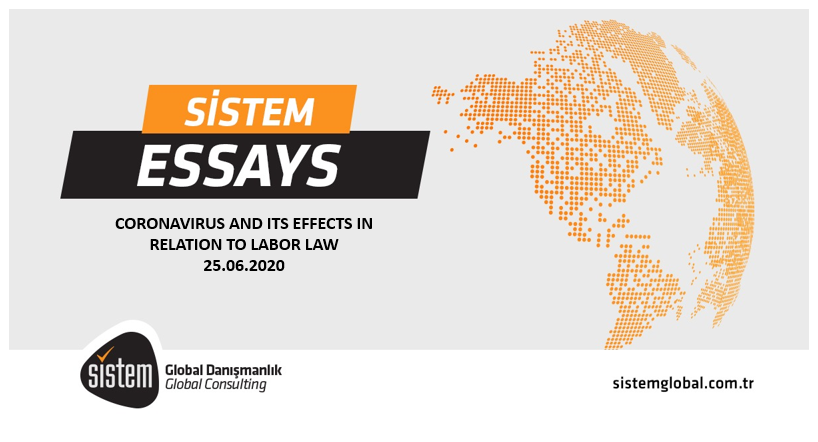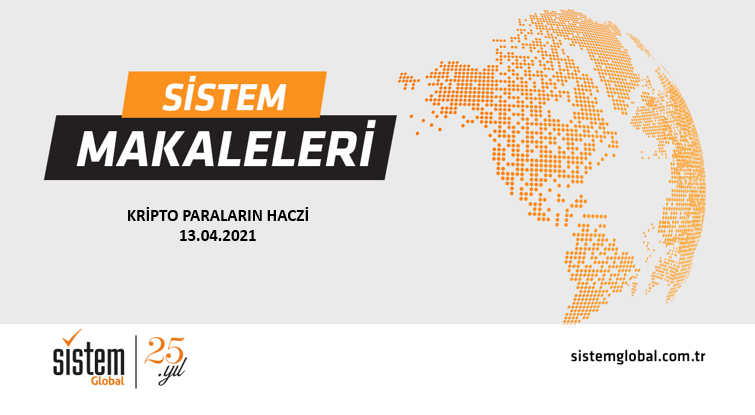
Anonim Şirketlerde Bilgi Alma ve İnceleme Hakkının Kullanılmasının Kapsamı, Konunun İncelenmesi Hakkında
24 Haziran 2020
IMPACTS OF COVID-19 PANDEMIC ON JUDICIAL AND ADMINISTRATIVE PROCEEDINGS IN TURKEY: RECENT DEVELOPMENTS AND SUSPENSION OF DEADLINES
25 Haziran 2020Upon the detection and rapid spread of Covid-19 in our country, or as known by the people, coronavirus, the measures to be taken by the companies’ as employers came to agenda, in many workplaces; not supplying raw material from abroad and terminating the production to prevent the disease from spreading and the option of working from home for white collar employee has been brought up. In this article, firstly, the measures to be taken by the employer due to coronavirus will be scrutinized, the legally allowed methods to be followed by the employer intending to stop production will be examined and the remote working principles will be clarified.
A. Measures to be Taken by the Employer within the Scope of Coronavirus
In accordance with the article 417/f.2 of the Turkish Code of Obligations numbered 6098 and article 4/1.a. of the Occupational Health and Safety Law (“OHSK”) numbered 6331, the employer should take all necessary measures to ensure occupational health and safety in the workplace, keep the tools and equipment complete, be able to legally prove that the measures are taken, make the health and safety measures suitable for unstable conditions and endeavor to improve the current situation.
The World Health Organization declared Covid-19 virus as a pandemic; since the number of coronavirus incidents are increasing all over the world and so in our country, the employer is primarily responsible for taking all necessary measures to protect occupational health at the workplace
On the other hand, in the event of a serious and imminent danger in the workplace in accordance with article 13 of the OHSK, it is legally possible for the employees to notify the employer about the necessary measures to be taken and avoid working until such measures are taken. In cases where the employee does not work for this reason, the employer is obliged to pay the wages and other labor receivables. In the current case, the increase in the number of coronavirus in our country and thus life threatening emergency may lead to the widespread exercise of this article.
B. Suspension of Production or Closing of the Workplace
Since some of the employers could not supply raw materials from abroad due to coronavirus and some faced the possibility of pausing production in order to prevent the spread of the disease, cancelling the existing orders of their customers, and therefore dropping the shifts at the workplace, they are faced with the possibility of temporarily closing the workplace. In terms of white collar employee, remote working has already came into the agenda and started to be exercised quite commonly. Remote working conditions will be scrutinized in the following section.
Alternative options may be implemented in case of pausing production and/or shutting down the workplace, especially for employers operating in the production sector with blue collar workers, are as follows:
1. Short-time Working: In accordance with the additional article 2 of the Unemployment Insurance Law No. 4447; In the event that the weekly working hours in the workplace are significantly reduced temporarily or the work is temporarily stopped, completely or partially, due to the general economic, sectoral or regional crisis and compelling reasons, short work may be done in the workplace not to exceed three months.
With the provisions of the Regulation on Short-time Work and Short-time Work Allowance published in the Official Gazette dated 30.01.2020 and numbered 27920, the compelling reason is defined as periodic conditions arising from external effects and not employer’s management, which are unpredictable, and thus unavoidable, leading to temporarily reducement of working period or result in a complete or partial suspension of activities or situations such as earthquake, fire, flood, landslide, epidemic disease and mobilization.
In case of short-time work, short-time working allowance is paid by the Unemployment Insurance Fund. In fact, it is also stated by the government within the framework of the Economic Stability Shield declared on 18.03.2020 that the Unemployment Insurance Fund will be activated and the procedures will be expedited and facilitated.
Short-time work can be done for a maximum of three months, when there are compulsory reasons, the allowance starts after the first week. In order for the employee to become entitled to the short-time work allowance, s/he must fulfill the conditions for unemployment insurance, except the termination of the employment contract. The employee must be entitled to unemployment benefits in terms of working hours and the number of days of unemployment insurance premium payment, according to the article 50 of the Unemployment Insurance Law, at the short-time work onset.
Short-time working allowance cannot be requested for the employees who do not meet these conditions.
For requesting short-time working allowance, employer must give written notification to Turkey Employment Agency’s installation units in cities and towns and to the collective bargaining side of labor unions. Upon the notification made, the inspector appointed by the institution checks out to make sure that the short-term working allowance conditions are met.
Daily short-time working allowance must be 60 % of the average daily gross earnings of the insured employee, taking the earnings for the last twelve months subject to premium into account.
The amount of short-time working allowance calculated in this manner, cannot exceed 150 % of the gross amount of the monthly minimum wage for employees older than 16, in accordance with Article 39 of the Labor Law No. 4857. Transactions regarding the transfer of insurance premiums and the provision of health services for those who benefit from short-time working allowance are carried out within the framework of the principles specified in Law No. 5510.
Payments made as short-time work allowance are deducted from the initial unemployment benefit period.
2. Collective Leave: In accordance with Article 10 of the Annual Paid Leave Regulation published in the Official Gazette dated 03.03.2004 and numbered 25391, the employer or employer’s representative can apply collective leave covering all or part of the employees between the beginning of April and the end of October.
Collective leave periods can be determined to include employees who have not yet earned the annual paid leave. In the case of collective leave, we are of the opinion that such leave given should be deducted from the annual paid leaves of the employees. In this case, employees must fill an annual paid leave form. Since the regulation clearly mentions the beginning of such leave as April, it seems collective leave cannot be applied in March.
3. Compulsory Annual Leave: The employer’s determination of the annual paid leave can be counted within the scope of the employer’s right to management.
In the resolution of 9th Civil Chamber of the Supreme Court, dated 28/01/2016, 2014/27000 M. 2016/2328 D. it is stated that “… As stated in the annual paid leave regulation, it is within the scope of the employer’s right to management to determine when to take the annual leave. It is clear that this right of the employer should be used within the framework of good faith rules. In other words, the right to rest of the employee, which has the constitutional basis, should be used in accordance with the demands of the workplace and as much as possible at the request of the employee… ”. In this context, compulsory annual leave application can also be considered as an option. The employees who are not entitled to the annual leave, can take the following year’s leave as an advance. In the case of advance annual paid leave, the form must be filled and it must be documented that the employer takes such leaves “as an advance” as it will be appropriated from the next year’s paid leave.
4. Unpaid Leave: In case of mutual agreement between the employee and the employer, the employee may use unpaid leave for a mutually determined period. The employment contract of the employee remains pending during the unpaid leave. In other words, during this period, the employer will not fulfill the duty of his/her performance of work resulting from the employment contract, and the employer will not fulfill the obligation to pay wages. SSI premiums of the employees are not paid during this period. The application of unpaid leave is very exceptional and can be granted in cases specified in the Law and the insurance premium of the employee is not paid during this process, so should not be preferred to exercise. Unpaid leave cannot be applied with the unilateral will of the employee or the employer. According to the established Supreme Court application, if unpaid leave is given without the consent of the employee, this is deemed as the termination of the employment contract by the employer and the employee is required to be paid severance and notice pay. In such a case there is also a risk of reemployment lawsuit. Therefore, if there is no clear and written unpaid leave request by the employee, it is not a legally appropriate method to give unpaid leave to the employees.
5. Administrative Leave: It is a method allowing the employee not to go to the workplace and perform its duties for a period determined by the employer, without deducting from the annual leave of the employee, where the employer continues to pay wages and the worker is on leave. This method is quite preferred in today’s circumstances.
6. Compensatory Work: In accordance with the provisions of Article 64 of the Labor Law, in cases where the work is paused due to compulsory reasons, there is a holiday before or after the national holidays and general holidays, or when the working hours are significantly lower than normal working hours or there is a full vacation, the worker is allowed to leave; the employer can implement compensation work in the company for the periods off, provided that they are completed within two months. However; it is indicated by the government within the framework of the Economic Stability Shield declared on 18.03.2020 that compensation work period will be enhanced up to four months.
Compensation work cannot be counted as overtime or overtime periods. Compensatory work shall not exceed three hours a day, provided that the daily working time does not exceed the maximum working hours (according to the Labor Law Regulation on Labor Times Regulation, the daily working time cannot exceed 11 hours in any way). Compensation work cannot be done on holidays.
In the event that no results can be obtained with unpaid and paid leave alternatives, compensation work can be followed as stated above, and it shall be announced by the employer to the employees that the work will be stopped between the dates to be determined at the workplace and when the work will start, the time, date and hours of the compensation work shall be announced in order not to encounter a problem, it will be appropriate to get written approval. The wages must continue to be paid to the employees during the non-working period, and additional remuneration is not required for the compensatory work to be done in a way that the total daily work does not exceed 11 hours.
7. Half-wage Payment: In accordance with Article 40 of the Labor Law, the employee who is not able to work or is not employed due to the compelling reasons stated in the clauses (III) of Articles 24 and 25 of the Labor Law, is paid half a day for up to one week in this waiting period. A compelling reason must arise which prevents the worker from working for more than a week in the workplace for the implementation of half-wage payment. Failure to supply raw materials in the workplace due to coronavirus or inability to show up at the workplace due to epidemic disease can be considered as a compelling reason.
In this case, it should be noted that, in accordance with Article 24/III of the Labor Law, the employee may terminate the employment contract by justification, as there are compelling reasons for stopping the work for more than a week in the workplace where the employee is working. In the event of termination of the employment contract by the employee based on this article, the employer will pay severance pay to the worker (including wages such as annual leave, overtime, etc., not subject to termination).
8. Remote Working: Although it is not possible for every employee, depending on the employment contract and the qualifications of the works, the possibility of employees to work remotely may arise, especially for white collar workers. Although the employer stops production or closes down the workplace, s/he mostly requires white collar employee to work remotely in order to prevent the interruption of administrative affairs.
Remote working is defined in article 14 of the Labor Law as “the work relationship established in writing and based on the principle that the worker fulfills his/her work at home or outside the workplace with technological communication tools within the scope of the work organization created by the employer“.
In the course of remote work, the employee is obliged to fulfill his/her work at home or out of the workplace without showing up at the workplace, and the obligation of loyalty to the employer and the obligation to follow the employer’s instructions continues. The employer’s obligation to pay the wages to the employee continues. In other words, apart from the fact that the employee is not present at the workplace, all rights and obligations arising from the law continues.
The remote working contract should be made in writing, and it should include; the definition of the work, the way it is done, the duration and location of the work, the issues related to wages and payment of the wages, the equipment provided by the employer and the obligations related to their protection, the employer’s communication with the worker, and general and special working conditions. Otherwise, the problems regarding the wages and working hours may occur.
If the employer wants to exercise remote work due to the coronavirus epidemic to the extent permitted by the duties and working conditions of the employee, it is recommended that a protocol should be made with the remote worker. When it is not possible to make a protocol based on extraordinary conditions, at least the employees must be notified by e-mail. It is possible for employees to refuse to work remotely, as remote work requires mutual consent of the parties. If employees do not agree to work from home for any reason, they may be needed to given paid leave. Each case must be considered and settled uniquely, in such situations.
C. The Status of Workers Coming from Abroad
Another matter in question is that whether the employer should allow the employee coming from abroad show up at the workplace and be paid or not.
First of all, the circulars published recently and in the announcements made by the Ministry of Family, Labor and Social Services, if a person is diagnosed within the scope of “Z03.8 and Z03.9” by the physician, a rest report will be issued for up to fourteen days, and the incapacity allowance of these citizens will be covered by the SSI and for the employees who are obliged to go abroad, it is stated that the employee will be asked for a medical report before starting the job and the 14 days rule of the virus will be observed. In this context, the report period, which can be given up to ten days by a single physician, has been increased to fourteen days.
Employees who are coming from abroad and are given a rest report during the incubation period should not be employed during the rest period, a missing day notification should be made regarding the period they are reported, and the fee for this period should be requested from SSI. If an employer makes the employee show up at work without waiting for the expiration of the fourteen days of incubation period, s/he may be held responsible within the scope of occupational health and safety obligations as an employer, as such employee will risk the health of other employees in the workplace.
If the employee coming from abroad does not have a rest report, it is better be worked remotely, from home, throughout the quarantine period of fourteen days. If it is not possible for the employee work remotely, it is better to make his/her take annual paid leave based on a written consent.
To summarize all the issues explained in detail above;
- If your employee coming from abroad have a health/rest report, they should not be showed up at the workplace as long as the report lasts, and those who do not have a health report should work from home during the fourteen-day incubation period, and if not possible, a compulsory annual leave shall be given.
- Ensure that employees who have ominous health conditions in the workplace or who have flu are asked to apply to a related health institution. If the employee is not given a report by the healthcare provider, make s/he work from home and if the employee is not able to work from home, s/he shall be obliged to have a mandatory annual leave.
- Regarding the production companies, especially for the blue collar employees, you should choose the most suitable method for your company from the options detailed in section B.
- Regarding your white collar employee who are able to work from home, we recommend you to consider the remote working option detailed in section B.
We wish you healthy days.
Sistem Law Office





